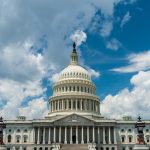What are the current IP trends occurring in your state and how does this relate to the rest of India?
In response to this, it is to be noted that the National IP Policy notified in May 2016 has had very positive impact on the IP scene in India by providing a road map to effectively protect and manage IP. Six of the seven IPRs, barring Plant Variety Protection, are now under the Department for Promotion of Industry and Internal Trade (DPIIT) formerly DIPP, the nodal office for IPR under the Ministry of Commerce, making it easier to administer and address Stakeholder requirements/feedback/complaints/queries. For instance, the revised TM Rules 2017 have dramatically reduced the number of forms in TM filing from 74 to eight.
. It is significant to note that first time IP owners, Startups (under the Startup Initiative), small entities are very aware of IP and are also ensuring enforcement of their IPRs.
The commercialisation of IP, which is also one of the objectives of the National IP Policy, is one area that requires a lot of support and the SKS Law Team is working in our own capacity, as well as with the Confederation of Indian Industries (CII – IP Policy Team), to identify means to help IP owners with valuation of their IP and commercialise their IP. Enforcement is becoming more effective with greater awareness among the Judiciary as well as the Customs and Police officers with regard to modes of infringement, seizure of goods etc. It is significant to note that first time IP owners, Startups (under the Startup Initiative), small entities are very aware of IP and are also ensuring enforcement of their IPRs.
With the “Make In India” and the “Startup India” Initiatives in place, we have noticed an upsurge of innovation across the country.
Are there any trends you predict will occur in the next year, regarding IP in India?
With the “Make In India” and the “Startup India” Initiatives in place, we have noticed an upsurge of innovation across the country. The innovations may not all qualify the patentability criteria but it is clear that there appears to be an upsurge on enquiries on trademarks, industrial designs, copyrights and on domain names. The excitement is palpable. According to WIPO in 2016-17, the number of TM applications surged 134%.
As to date, things have improved and there is no misconception on the enforcement of IPRs.
When advising foreign clients, can you share misconceptions they may have when trying to enforce protection on their IP?
As to date, things have improved and there is no misconception on the enforcement of IPRs. However, since India does not have Trade Secret Law, there are queries on the best means to protect trade secrets and the ways to enforce it before the Courts.
You have been involved in drafting parliamentary bills; can you share more about this? What impact has this made?
The drafting of the parliamentary bills happened by chance. I have often been introduced as a lawyer with a heart. So when a green movement sought to introduce a bill for the protection of Traditional Knowledge, I was invited to be a member of a core group to develop a basic draft bill which was then studied by a team at the National Law School, Bangalore (NLSUI) and was then notified for public comments by the Chairman National Biodiversity Authority.
The second one I worked on was the National Health Bill for the Royal Kingdom of Bhutan in my capacity as Legal Adviser, World Health Organization, which involved collating feedback from all sections of administration including hospitals practicing modern medicine and traditional medicine, to waste management to mental health and spiritual health. A vast exercise under the Ministry of Health of Bhutan, it is now pending. As a Legal Adviser I have also worked on the International Health Regulations and examined about 75 laws in India that would be effective in implementing IHR and a similar exercise In Bhutan.
Ms. Sunita K Sreedharan Advocate
Founder, SKS Law Associates
R10, Flat No 4,
Nehru Enclave,
New Delhi – 110019
India
About Sunita and her Firm
Sunita K Sreedharan, lawyer on spiritual journey: a visionary with a goal for better society with harmonised laws promoting ease of doing business, just enforcement; a scientist with an interest in the science behind the Indian Traditional Knowledge, she is a computer professional with a penchant for systems analysis and a design artist.
A mid-career switch from a manager level computer professional to lawyer following a major personal upheaval brought her back to a junior level lawyer in a leading IP Firm. The challenges were many but they were interesting take on how life can change in moments. She focused on learning the fine nuances of Indian Patent Law which was then undergoing multiple reforms to align it with the TRIPS Agreement. It was also the time that other laws were being notified such as the laws relating to Geographical Indications, Plant Variety protections, Biodiversity & Traditional Knowledge. There was so much happening that working 110 hours a week was not enough to complete all the work allocated.
Being aware of the significance of transactional aspect of IP, Sunita a became member of the Licensing Executing Group and attending all LES International meetings. This exposure led her to the George Washington University Law School to earn an LL.M studying IP Licensing and Intellectual Asset Management on a year’s sabbatical. A year after sabbatical, she decided to start her own law practice, SKS Law Associates, with a focus to create strong IP Portfolio for clients, manage them and commercialise them. In these 12 years (in September 2019), SKS Law has helped clients protect and acquire interesting IP portfolios, protect their trade secrets, conducted IP Audits and saved money, offered significant advise on valuation, provided competitive intelligence, prepared patent landscapes, trained scientists and patent examiners, worked to harmonise laws especially in biodiversity related matters by providing inputs to the Ministry of AYUSH, Ministry of Environment (MoEF&CC), the Niti Aayog, the Ministry of Commerce etc. They successfully represented Rediff.com Ltd in the one and only case on business method patents (Yahoo Inc v. Controller of Patents & Ors). Meanwhile the SKS Law Team has very successfully continued with the drafting, filing and prosecution of patents, trademarks, copyrights, GI and industrial designs.








